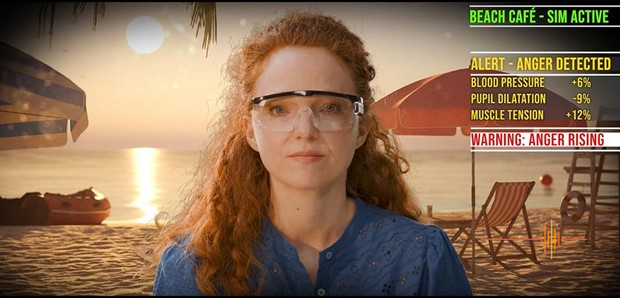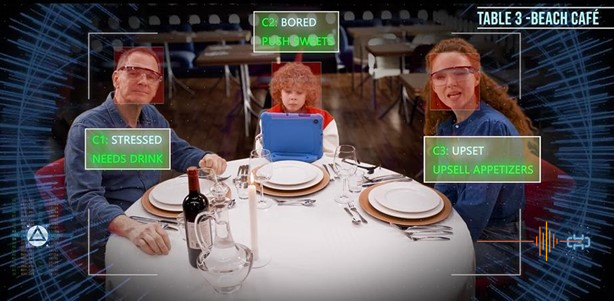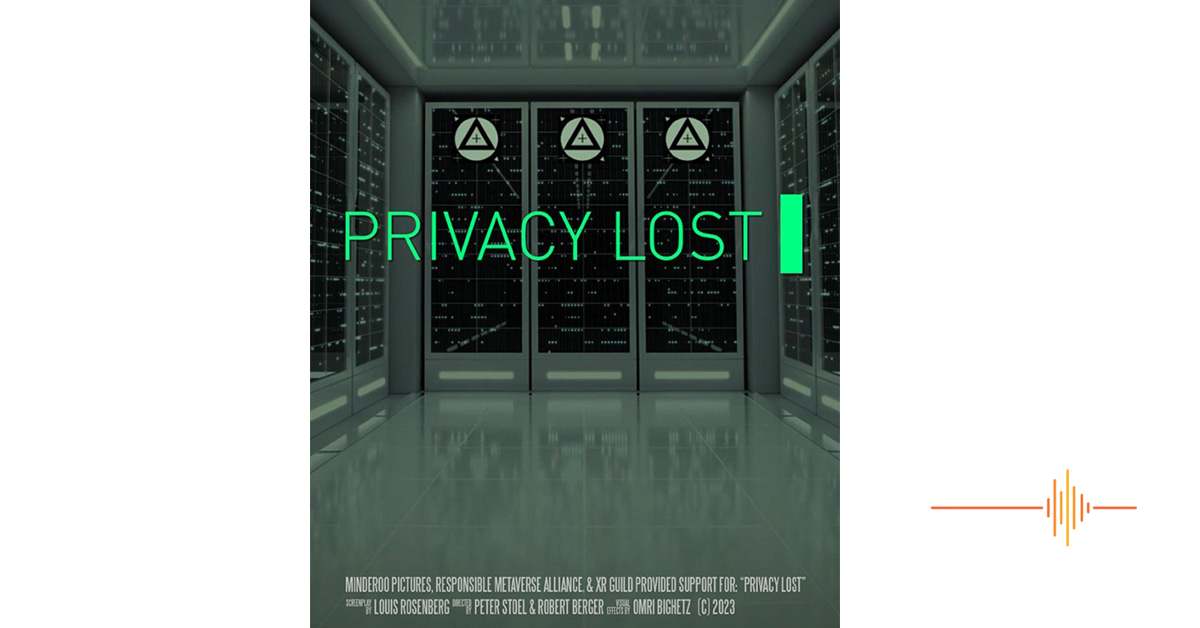In the near future, mixed reality technology will make our world a magical place. Soon to be deployed by the largest tech companies on the planet, AI-powered glasses will fill our lives with artistic and creative content everywhere we go, from our homes and offices to retail stores, parks, restaurants, schools, and even city streets.
Unfortunately, this magical future comes with great risks. Unless regulated, these devices could allow platforms to track our behaviours and monitor our emotions like never before. Not only will this threaten our privacy, it will leave us vulnerable to AI manipulation throughout our daily lives.
PRIVACY LOST is a short film about our augmented future and the very real dangers headed our way. Developed with support from Minderoo Pictures, the Responsible Metaverse Alliance, and the XR Guild, it aims to educate the public and policymakers about the emerging risks.
The film was written & produced by Dr. Louis Rosenberg, an early VR researcher who developed the first mixed reality system at Air Force Research Laboratory (AFRL) three decades ago and is now a vocal advocate for regulation. The film was shot at HeadQ Productions, a virtual studio outside Amsterdam led by Director and Producer, Peter Stoel.
As depicted in the film, mixed reality devices use powerful sensors to process facial expressions and track real-time emotions. This emotional data is not only a threat to user privacy but could also be used to manipulate users in real-time through AI-powered interactive influence.

“Mixed Reality is an amazing technology that will free computing from the limitations of the flat screen,” explained Rosenberg at the Augmented World Expo (AWE). “But without guardrails, it could also allow tech platforms to track everything we do and monitor exactly how we feel while doing it. This could be used to influence our behaviours through AI-generated content that adapts to our every emotion. This is profoundly dangerous.”
The film depicts how AI-powered immersive technologies could threaten our privacy in dangerous new ways and enable new forms of emotional and behavioural manipulation.
The film’s producers call for regulation that protects our emotional privacy and bans real-time manipulation by AI generated conversational spokespeople.
PRIVACY LOST depicts a simple example of the dangers. A family eats in a restaurant while mixed reality glasses transport them to a beachfront café. In that future, their emotions are processed in real time, enabling an AI-generated waitress to optimise her sales tactics, skilfully upselling each of them. Of course, the risk of AI-optimised influence is not limited to selling products or services. The same tactics could be used to deploy misinformation and propaganda.

“The risks to children are the most concerning,” said Dr. Catriona Wallace, founder of the Responsible Metaverse Alliance. “AI-powered characters like the teddy bear depicted in Privacy Lost could easily influence and manipulate kids. The technology to achieve this already exists, and without regulation these tactics are likely to be deployed in the near future.”
PRIVACY LOST is now freely available online in hope that is shared widely. It aims to educate the public about the risks of AI-powered influence, especially in immersive worlds that track user behaviours and emotions. The call to action is regulation that protects emotional privacy and bans real-time manipulation through AI-generated conversational influence.



